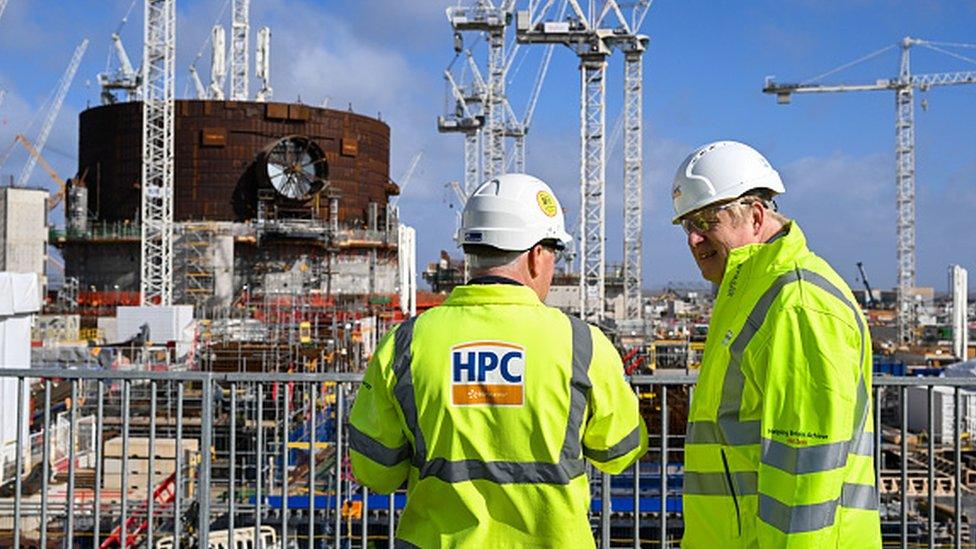Hospitality firms face 'perfect storm' this winter
- Published
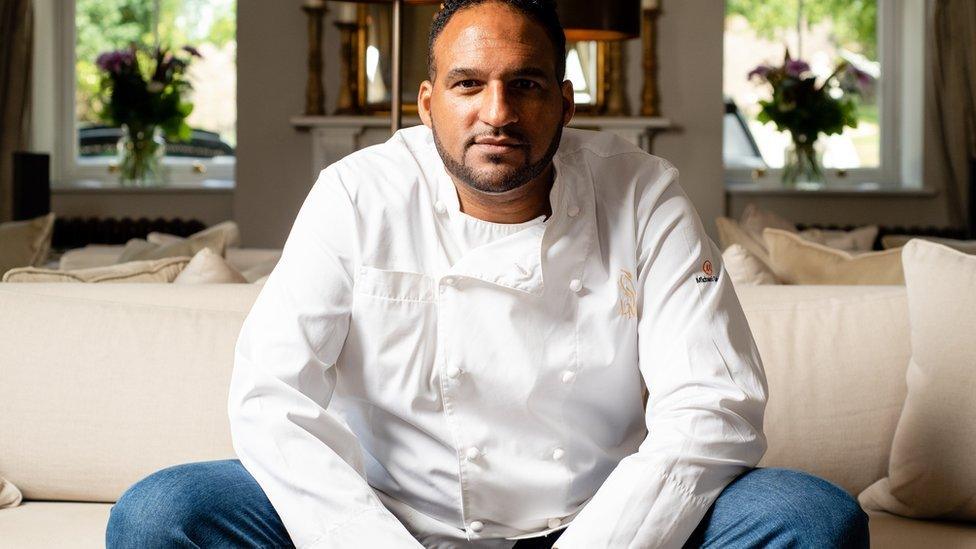
Chef Michael Caines said it had been the "worst two years of his life"
Hospitality firms are facing a "perfect storm" which is forcing some businesses into winter shut-downs or permanent closure, business leaders have said.
Experts warn restaurants, holiday parks and hotels are struggling with the fallout from Brexit, Covid, living costs and energy bills.
One holiday park boss, who owns sites in Cornwall, said his gas and electric bill would rise by £200,000 this year.
The government said its Energy Bill Relief Scheme would halve energy costs.
But an insolvency expert has warned many firms will be "considering their options" over the next six months.
It comes as the Bank of England forecasts the UK is facing its longest recession since records began.

Raoul Fraser said his Cornwall holiday parks were facing a £200,000 energy bill increase
Raoul Fraser, CEO of Lovat Parks, said they were facing a £200,000 increase in gas and electric bills this year, just on their four Cornwall holiday sites.
Mr Fraser, who owns parks in Padstow, Mawgan Porth, Fowey and Hayle, said they would close some site areas to reduce energy consumption.
He said: "We won't keep swimming pools open, not all caravans will be available and we'll reduce the number of people who can come on to our sites.
"We'll be making sure when guests stay that they are aware of not leaving the heating on all the time."
Mr Fraser, who employs 70 staff in Cornwall, said he was still hopeful, adding: "We do believe fundamentally people will holiday more in the UK because the price of going abroad is very prohibitive."
In Porthleven, celebrity chef Michael Caines will this month close his restaurant Harbourside Refuge, two years after opening.
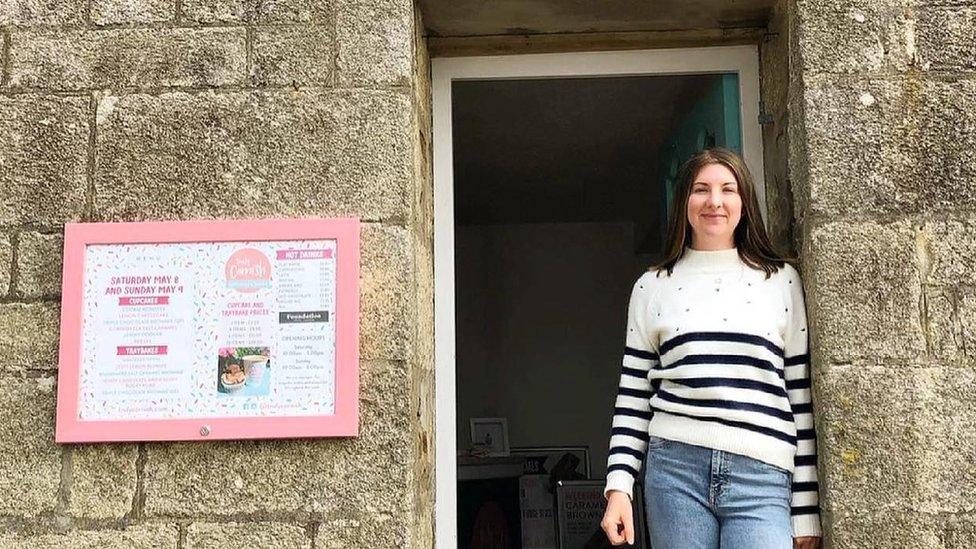
Bethany Harrington said rising costs were a "contributory factor" in moving her business to her home
He told the BBC he hoped to reopen in the spring but said the economic climate may force them to sell.
Mr Caines said a "130% rise in energy bills", produce prices, staff shortages and a drop in summer staycations had contributed to a "calculated decision to close to reduce losses", with a view to reopening in March.
He said: "It's been the worst two years of my life, I've never known anything like it."
Describing "challenging times", he added: "A lot of my colleagues have said it's horrendous. People who have been doing this for a long time are just broken and finding it difficult to stay positive."
Praising their customers, he said it was "better to close in the short-term" for the chance of a long-term future.
Fellow Porthleven business owner Bethany Harrington said rising costs were a "contributory factor" in her decision to take her cupcake business into her home kitchen.
Ms Harrington, who launched her Truly Cornish Cupcakes shop in 2020, moved to the market 18 months ago, before closing her stall at the end of the summer.
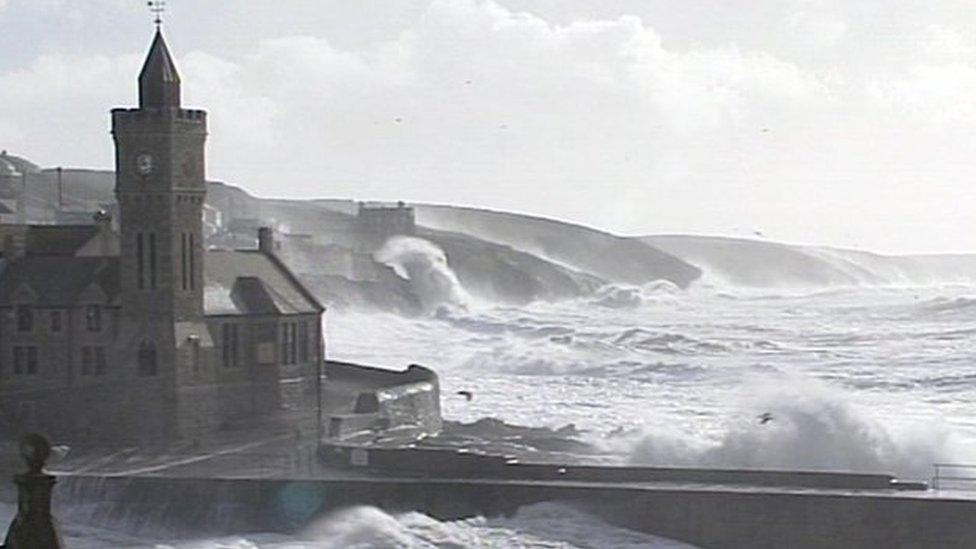
A number of businesses in Porthleven have been struggling with rising costs
She said: "It's hard running a catering business, you've got to work very hard to make it work as it is, let alone with costs going up."
Will Bird, manager of the 13th century Whitchurch Inn in Tavistock, said they now only served food at weekends.
He said: "Trying to get chefs is a nightmare. The cost of beer, oil and meat has gone up."
'Recipe for disaster'
Stuart Elford, chief executive of Devon and Plymouth Chamber of Commerce, said businesses in the region which "would have otherwise stayed open all year" were closing, "some for the winter, some completely".
He said Brexit, the pandemic, and soaring inflation and energy costs were a "recipe for disaster".
He added: "Restaurants and pubs are closing several days a week because they cannot staff the premises. If you are already struggling with used-up reserves and no money to repay Covid repayment loans, we are going to see many businesses go to the wall.
"The British Chambers of Commerce are calling on the government to be clearer on business energy relief and extend it to give businesses long-term certainty."
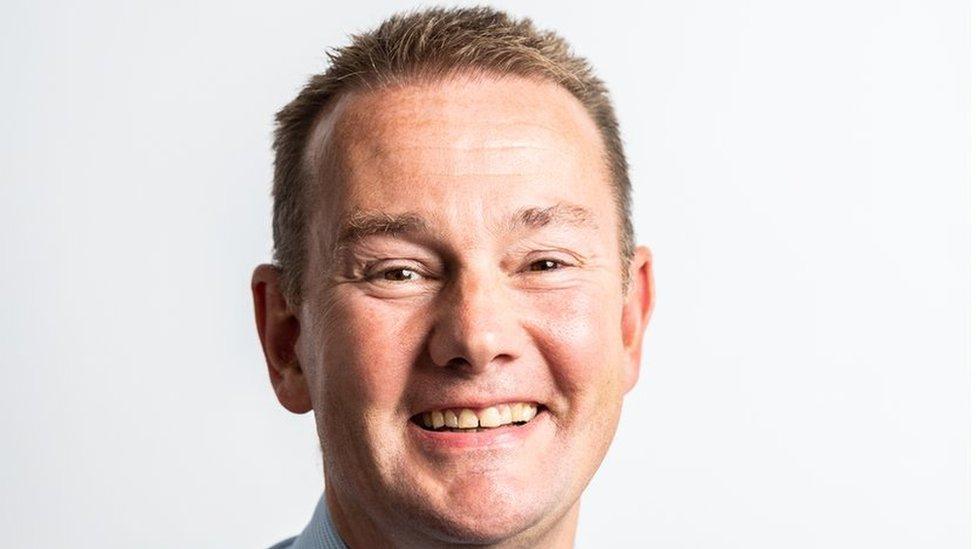
Patrick Tigwell, accountant, describes a 'perfect storm of horribleness'
During the pandemic, more than 1.6 million firms received government loans.
But Patrick Tigwell, partner at Westcotts Accountants in Exeter, said repayment had coincided with the cost of living crisis for many clients.
He added: "Leisure and tourism are the staples of the South West - and for them it's a perfect storm of horribleness."
His colleague Jon Mitchell, an insolvency expert, added: "We've seen more realities hit home. People are talking about ten-fold energy price increases.
"I think we'll be seeing more firms considering their options over the next six months."
The government said measures to help businesses included cutting fuel duty, raising employment allowance and business rate cuts.
It said the Energy Bill Relief Scheme would more than halve "predicted wholesale cost" of energy this winter.
A spokeswoman from the Department for Business, Energy and Industrial Strategy said: "We have backed businesses of all sizes throughout the past few years with an unprecedented package of support including recent fuel duty and VAT cuts, business rates holidays and government backed loans worth around £400bn.
"We will continue to stand firmly behind them."

Follow BBC News South West on Twitter, external, Facebook, external and Instagram, external. Send your story ideas to spotlight@bbc.co.uk, external
Related topics
- Published15 February 2024
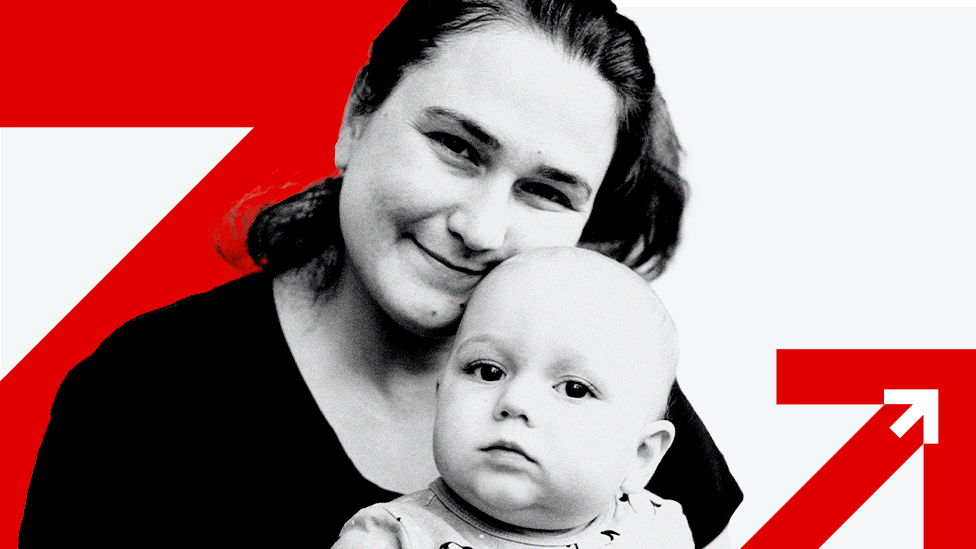
- Published6 November 2022
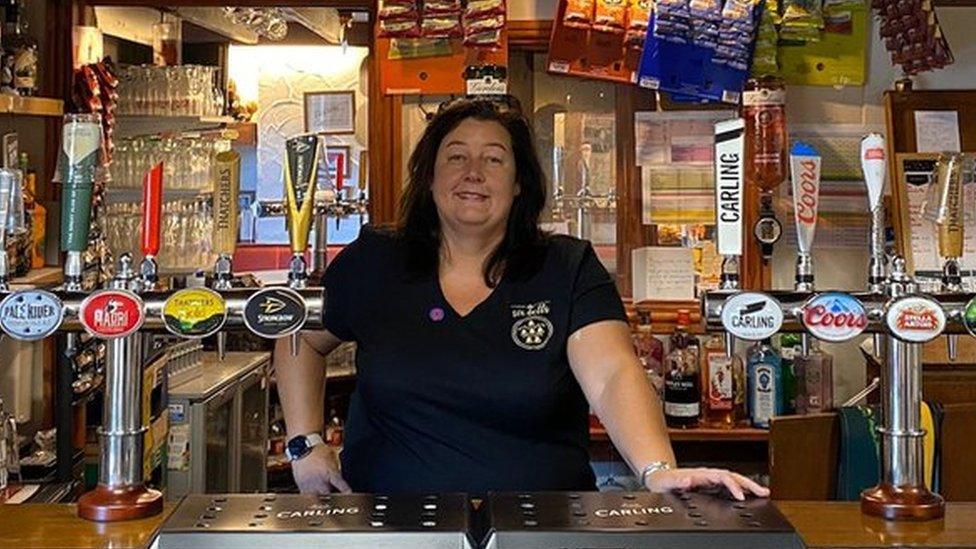
- Published7 November 2022
